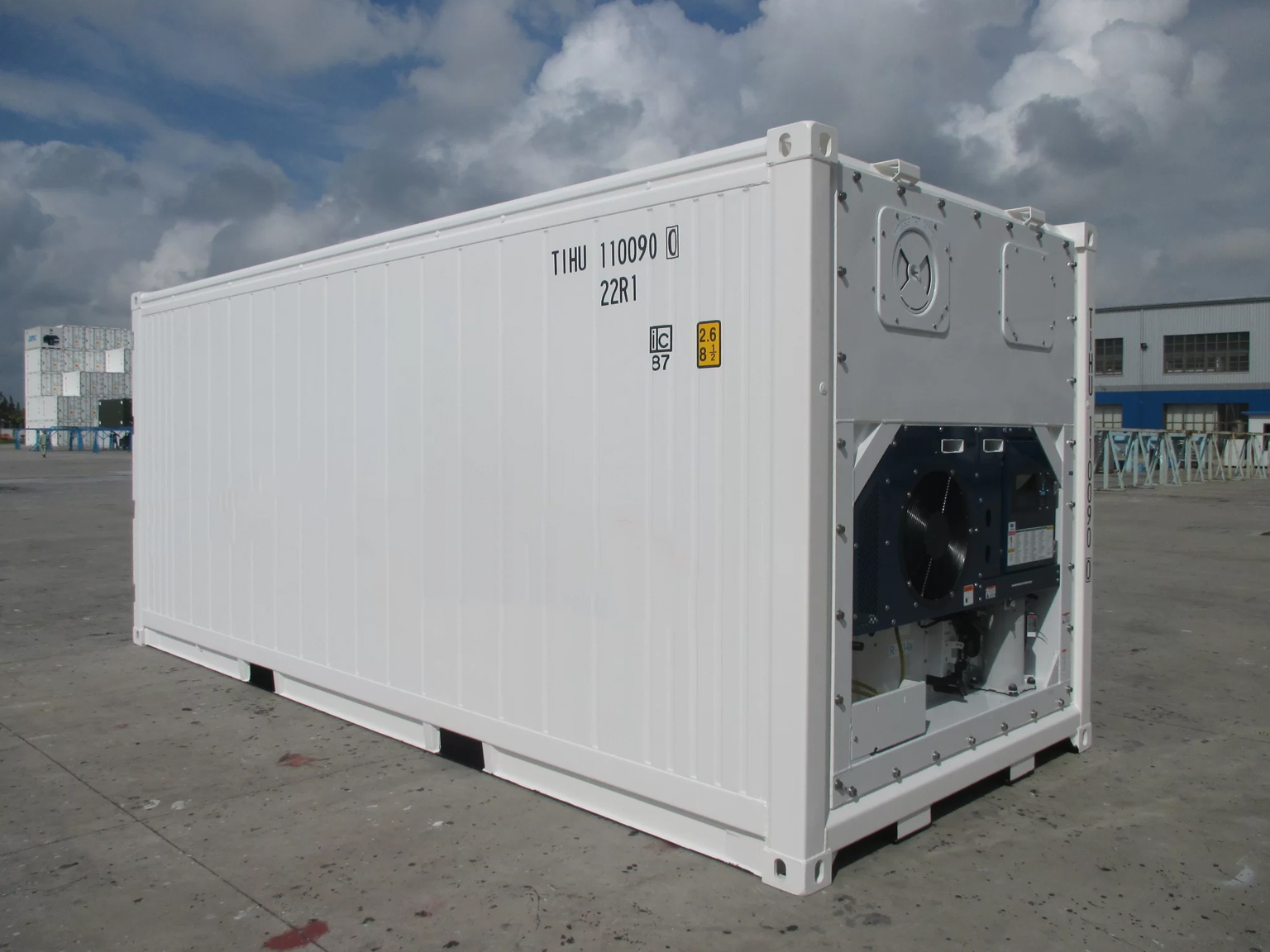When it comes to transporting temperature-sensitive goods, reefer containers are an invaluable asset for businesses across industries like food, pharmaceuticals, chemicals, and more. These refrigerated containers help maintain the integrity of your products throughout transit, ensuring they reach their destination in perfect condition. But with so many options available, how do you choose the right reefer container for your business? Here’s a guide to help you make the best decision.
1. Understand Your Cargo Requirements
The first step in choosing a reefer container is to understand the specific needs of your cargo. Different types of goods require different temperature ranges, and selecting the right reefer container will ensure that your products are stored and transported at the optimal temperature.
- Frozen Goods: If you’re transporting frozen products, like seafood or ice cream, you’ll need a container that can handle extremely low temperatures (around -20°C to -30°C).
- Chilled Goods: Fresh produce, dairy, and pharmaceuticals typically require a controlled temperature range between 0°C and 10°C.
- Sensitive Cargo: Some goods, such as certain chemicals or flowers, might require more specialized climate control, such as precise humidity levels.
2. Select the Right Size
Reefer containers come in various sizes, the most common being 20-foot and 40-foot containers. The size you choose will depend on the volume of goods you need to transport. Here’s what to consider:
- 20-foot Containers: Ideal for smaller loads or businesses with limited transportation needs.
- 40-foot Containers: Best for larger shipments or businesses that frequently transport bulk goods.
Choosing the right size not only ensures efficient use of space but also helps in optimizing your shipping and transportation costs.
3. Evaluate the Container’s Cooling Technology
Modern reefer containers come equipped with advanced cooling systems designed to maintain a consistent temperature. Make sure you select a container with:
- Energy Efficiency: Look for energy-efficient systems that will help minimize operational costs.
- Temperature Control and Monitoring: Some containers come with built-in temperature and humidity sensors that allow you to monitor conditions in real-time, reducing the risk of product spoilage.
- Alarm Systems: Ensure the container has an alarm or alert system that notifies you of any temperature fluctuations or malfunctions in the refrigeration unit.
4. Check Durability and Insulation
In addition to reliable refrigeration systems, it’s essential to consider the durability of the container. Choose containers made from high-quality, corrosion-resistant materials that can withstand harsh environments, especially if you’re transporting goods through regions with extreme weather.
Insulation plays a crucial role in ensuring the container maintains the correct temperature throughout the journey. Containers with thicker insulation are typically more effective in extreme conditions.
5. Consider Power Supply Options
Reefer containers require a continuous power supply to maintain the desired temperature. Consider the following:
- Plug-in Power: Standard reefer containers use electricity to power the refrigeration system. Make sure the container is compatible with your destination’s electrical infrastructure.
- Backup Power: In case of power outages, choose a reefer container with a diesel-powered generator for backup, especially for long-distance shipments or when traveling through remote areas.
6. Look for After-Sales Support and Maintenance
Like any equipment, reefer containers require regular maintenance to ensure they perform optimally. Choose a supplier who offers excellent after-sales support, including repair services and access to replacement parts.
- Regular Maintenance: Ensure the container is easy to maintain and inspect, particularly the refrigeration unit, seals, and insulation.
- Repairs: Opt for a supplier with a track record of quick, reliable repair services in case of any malfunctions.
7. Compliance with Standards and Regulations
When selecting a reefer container, make sure it complies with international and local regulations related to temperature-sensitive transportation. This is especially important for food, pharmaceuticals, and chemicals that must meet safety and quality standards.
Check for certifications like:
- ISO 9001: For quality management systems.
- HACCP (Hazard Analysis Critical Control Points): For food safety.
- FDA Approval: For transporting pharmaceuticals or other regulated goods.
Conclusion
Choosing the right reefer container for your business is essential for ensuring the safety, quality, and timely delivery of your temperature-sensitive products. Whether you’re transporting food, flowers, or pharmaceuticals, selecting a reliable and durable container will help streamline your logistics operations and reduce the risk of spoilage.
Ready to Find the Perfect Reefer Container for Your Business?
At Shams Arabia Transportation and Storage Company (SATSCO), we offer a wide range of high-quality new and used reefer containers designed to meet your specific business needs. With over 30 years of experience in the industry, we provide reliable, efficient, and cost-effective solutions for your refrigerated shipping requirements.
Contact us today to explore our selection of reefer containers for sale in Saudi Arabia. We offer competitive prices, excellent after-sales support, and reliable delivery services.
Let SATSCO help you keep your goods fresh and secure during transit!
 عربي
عربي عربي
عربي